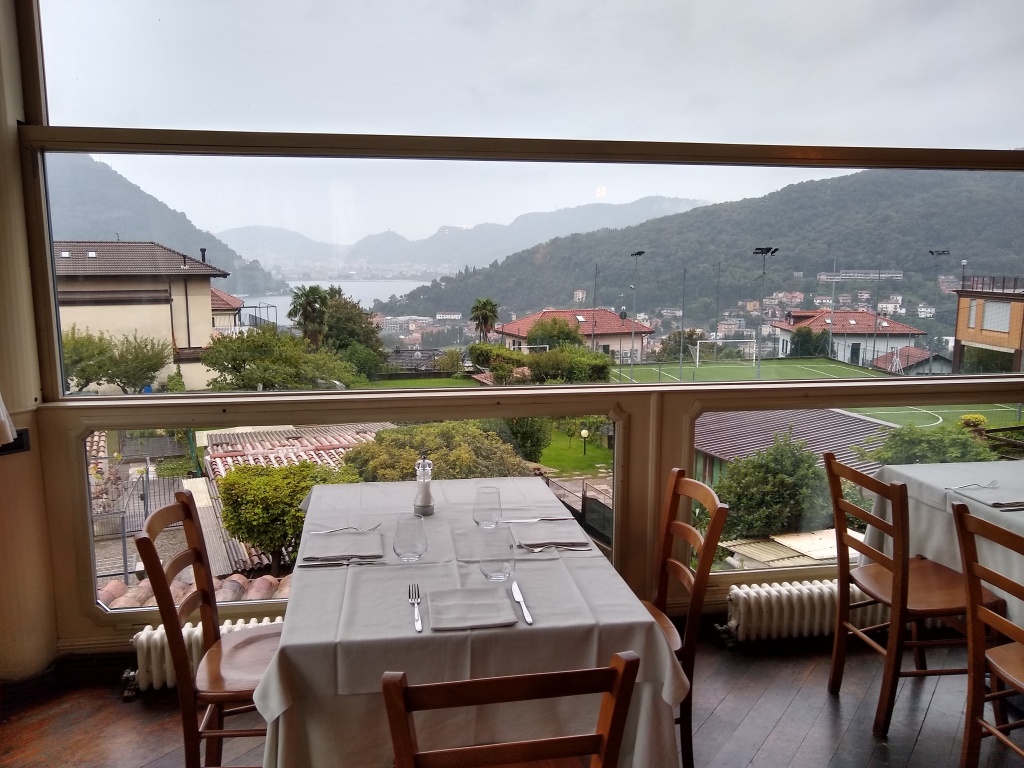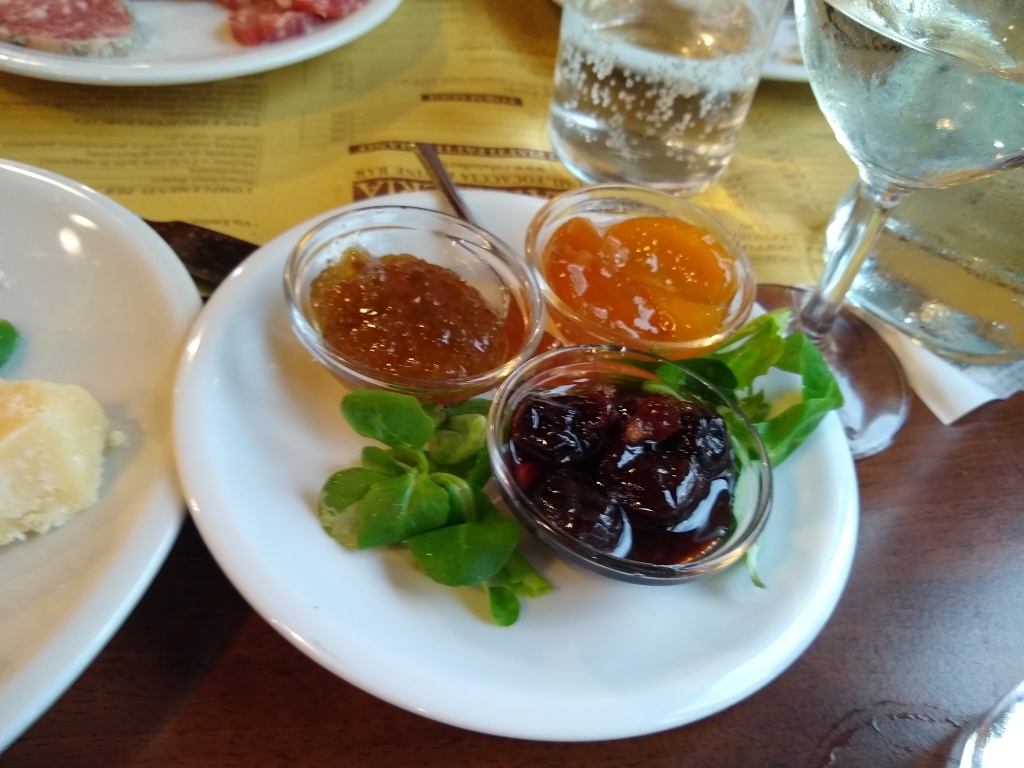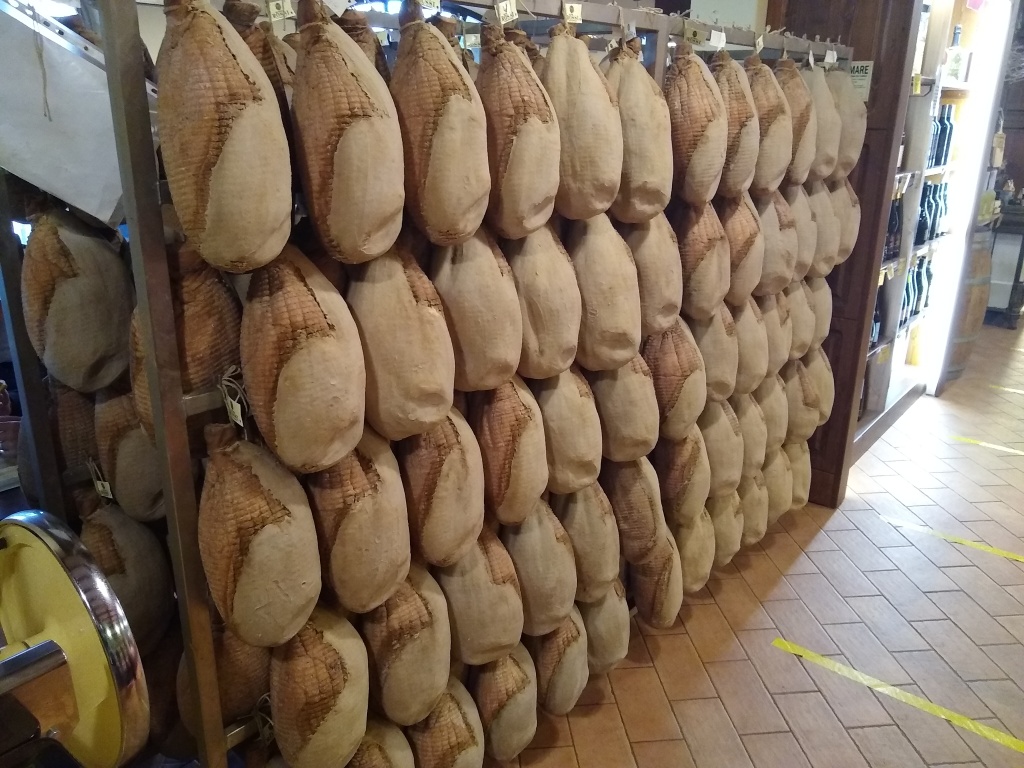Da stieg ein Baum. O reine Übersteigung!
O Orpheus singt! O hoher Baum in Ohr!
Und alles schwieg. Doch selbst in der Verschweigung
ging neuer Anfang, Wink und Wandlung vor.
Tiere aus Stille drangen aus dem klaren
gelösten Wald von Lager und Genist;
und da ergab sich, daß sie nicht aus List
und nicht aus Angst in sich so leise waren,
sondern aus Hören. Brüllen, Schrei, Geröhr
schien klein in ihren Herzen. Und wo eben
kaum ein Hütte war, dies zu empfangen,
ein Unterschlupf aus dunkelstem Verlangen
mit einem Zugang, dessen Pfosten beben, -
da schufst du ihnen Tempel im Gehör.
A tree ascended there. Oh pure transcendence!
Oh Orpheus sings! Oh tall tree in the ear!
And all grew hushed. But in that very silence
a new beginning, sign and change appeared.
Quiet creatures gathered from the clear
unhurried forest, out of lair and nest;
and so it must have been, their stealthiness
was not born out of cunning or of fear,
but just from hearing. Bellow, cry, and roar
seemed tiny in their hearts. And where before
there barely stood a hut to take this in,
a hiding place of deepest darkest yens,
and with an entryway whose doorposts trembled -
you built for them an auditory temple.
Translation notes:
line 1: “Da stieg ein Baum. O reine Übersteigung!”: The poem opens with the image of a tree, not passively being tall, but actively climbing. Both “stieg” and “Übersteigung” derive from “steigen” (to climb). So one would like the translation of “stieg” to be similarly active, and if possible, be echoed in the translation of “Übersteigung” (transcendence). I think “ascended” is about as good as one can get; Stephen Mitchell discovered this before me.
Rilke uses the tree metaphor frequently in Orpheus (often, as here and even more strongly in I,17, with a sense of rapid upward movement suggesting apotheosis). In other sonnets, Rilke develops particular aspects of the tree, especially the roots (= earth = graves = the dead) which appear in I,6 I,14 I,17 I,21 and II,27. The tree/upward motion motif also occurs in Rilke’s earlier “I find you there …” from The Book Of Hours (1905).
Line 5: “drangen”: “Drangen” can mean “penetrate”, but often in the relatively passive sense of “get through” or “come through”, so the P-word seems a bit too active and violent. Here the meaning is perhaps closer to “emerge (from)”.
Line 6: “gelösten”: The most literal translation of “gelösten” would be “loosened”, but it can also mean “relaxed”, “sluggish”, “slack”, “lax”, or “lazy”. That this is applied to the forest, and not to the animals, makes choosing an interpretation more difficult. Putting too much emphasis on slowness (“sluggish”? “lethargic”?) seems wrong; so does putting too much emphasis on laziness (“indolent”? “shiftless”?). Better and more balanced choices include “languid”, “relaxed”, or “tranquil”.
Line 14: “Tempel im Gehör”: Over and over, Rilke’s poems lead us through familiar territory, and then suddenly in the last few lines leave us teetering on the edge of a vast abyss, “swaying in clearness”. It’s a bit like turning a corner in your own neighborhood and finding yourself on the brink of the Grand Canyon. Here, he first describes a cramped, primitive, rickety lean-to to represent the animals’ sense of hearing before Orpheus, whose effort then replaces it with a temple which is more solid, more elegant – and more spacious.
Copyright ©1998,1999,2000,2021 Howard A. Landman







